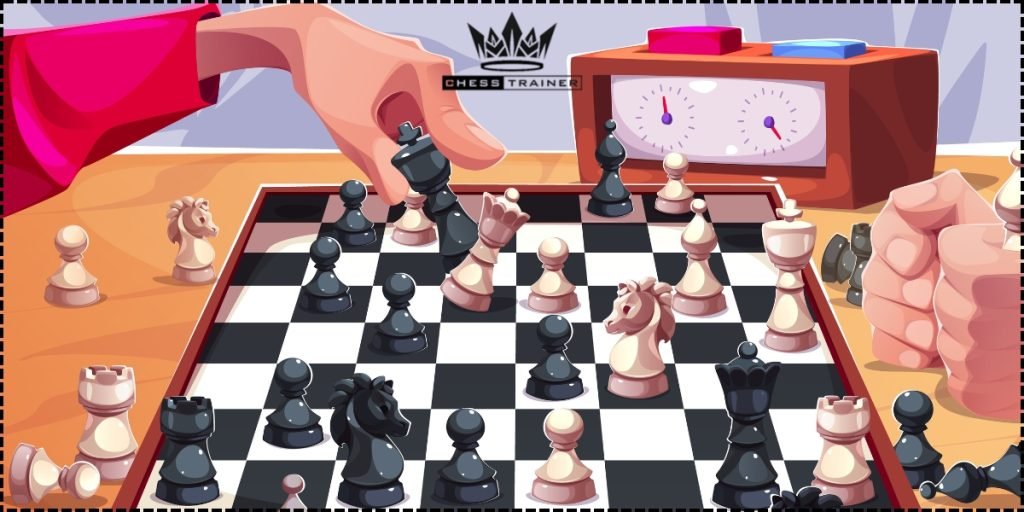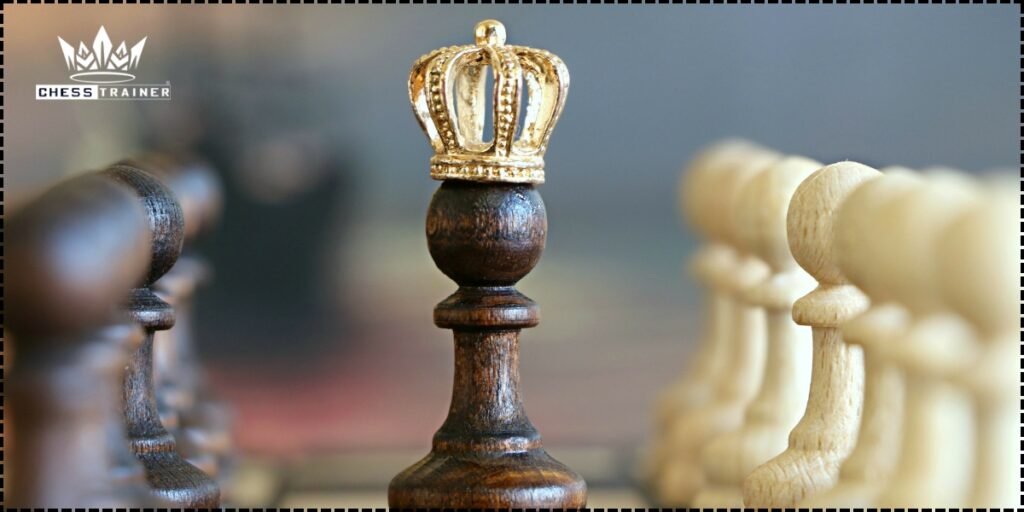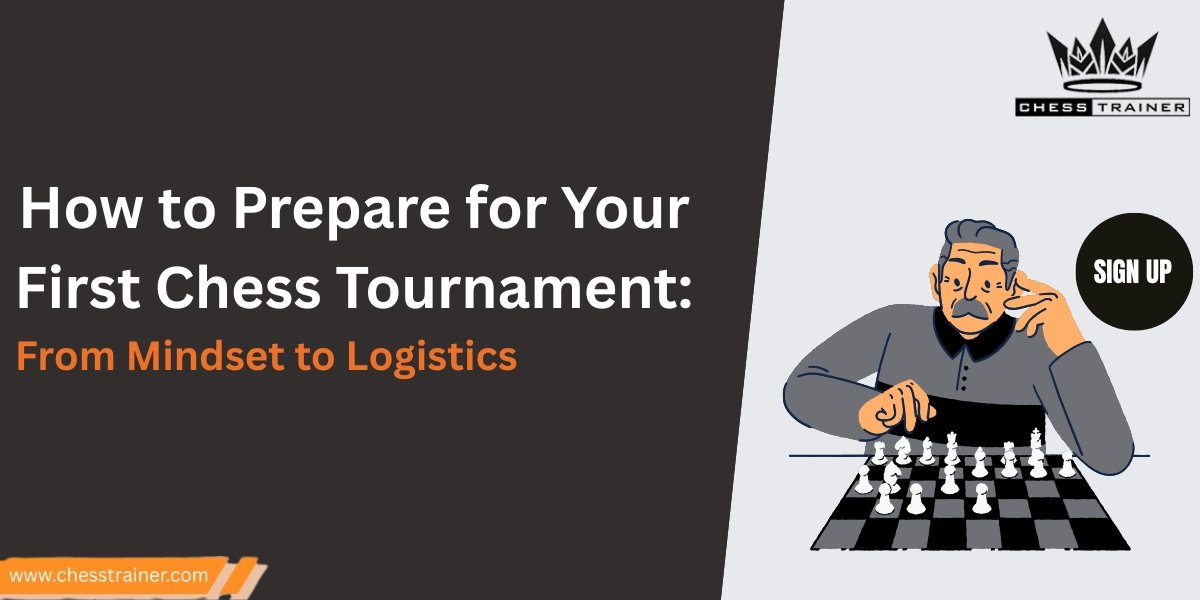How to Prepare for Your First Chess Tournament: Strategy, Focus, and Success
Participating in your first Chess Tournament is an exciting milestone for any player. Whether you’ve practiced countless games through online Chess platforms or trained under an online Chess Trainer, your first in-person competition marks a new phase in your chess journey.
Understanding how to prepare for your first chess tournament properly can help you play confidently, avoid common mistakes, and enjoy the experience. This educational first chess tournament guide covers practical chess tournament preparation tips, mindset strategies, and everything you need to ensure success on and off the board.
1. Understanding the Importance of Preparation
Preparation is more than memorizing moves – it’s about developing a winning mindset. To master how to prepare for your first chess tournament, focus on building consistency, resilience, and confidence.
Chess tournament preparation tips should include:
- Learning time controls and scoring systems.
- Playing timed games to simulate tournament conditions.
- Reviewing previous games to identify weaknesses.
When you know what to expect at your first chess tournament, you minimize anxiety and can focus on performance rather than logistics.
2. Developing the Right Mindset
Strong play begins with the right mindset. Mental preparation for chess players helps you handle pressure and remain composed. The key chess mindset and focus techniques involve visualization, goal setting, and emotional balance.
- Avoid comparing yourself to others.
- Treat each game as a learning opportunity.
- Practice mindfulness to maintain concentration.
When you understand how to get ready for a chess competition, remember that a calm and clear mind often outperforms aggressive but unfocused play.
3. Structured Practice Routine
The most effective chess practice routines before a tournament focus on both tactical and strategic growth. Many beginners wonder how to plan your chess game strategy effectively — the answer lies in smart, targeted practice.
Here’s how to prepare efficiently:
- Alternate between fast and slow games.
- Solve daily puzzles to sharpen tactical vision.
- Study opening and endgame principles.
- Use an online Chess Trainer to review and analyze.
By following these chess tournament strategy for beginners, you’ll enter the tournament with clarity and adaptability.
4. Designing Your Opening Strategy
Every player should have a simple yet reliable opening plan. For chess tips for first-time players, it’s best to understand core opening principles rather than memorize deep theory.
Your chess game strategy should emphasize:
- Quick development of pieces.
- Controlling the center.
- Maintaining king safety.
Competitive chess strategies for beginners highlight the importance of sticking to openings you’re comfortable with – especially under tournament pressure.
5. Pre-Tournament Checklist
Organization is crucial for your debut. Here’s a practical pre-tournament checklist for chess players:
- Carry your ID, pen, and score sheets.
- Verify your board number and round timings.
- Keep snacks, water, and a light jacket.
- Sleep well the night before.
This checklist ensures smooth logistics – a critical part of how to prepare for your first chess tournament effectively.
6. Enhancing Focus and Concentration
Even the best-prepared players lose focus during long rounds. Incorporate chess mindset and focus techniques to improve endurance and sharpness.
Improving concentration in chess involves:
- Practicing meditation or deep breathing.
- Avoiding distractions between rounds.
- Resetting mentally after each game.
Top players rely heavily on mental preparation for chess players to maintain consistency and clarity across multiple rounds.
7. Building Confidence Before the Big Day
Confidence is built over time, not overnight. Integrating chess confidence-building tips into your preparation helps you perform under stress.
Boost your self-belief by:
- Reviewing past wins.
- Playing practice games with a clock.
- Simulating tournament-like conditions on online Chess platforms.
Confidence allows you to trust your instincts and apply competitive chess strategies for beginners with conviction.
8. Taking Care of Your Health
A well-rested and energized body supports a sharp mind. Physical preparation plays a role in how to get ready for a chess competition effectively.
Follow these chess tournament preparation tips:
- Get at least 7 hours of rest.
- Eat brain-friendly foods like nuts and fruits.
- Stay hydrated and avoid sugary snacks.
Healthy habits amplify your focus, making your first chess tournament guide experience more successful.
9. Learning from Every Game
After the tournament, reflect on your progress. Analyzing your games with an online Chess Trainer helps identify patterns and areas for improvement.
Chess tournament strategy for beginners emphasizes reviewing mistakes without judgment. Learning how to plan your chess game strategy for the next event ensures steady growth and better results over time.
10. Essential Dos and Don’ts
✅ Dos:
- Record your moves carefully.
- Review pairings before each round.
- Stay calm after losses and maintain discipline.
❌ Don’ts:
- Don’t panic if your opponent plays an unexpected opening.
- Don’t discuss games while rounds are ongoing.
- Don’t experiment with new openings on the day of the tournament.
These essential chess tournament dos and don’ts build your professional habits early.
11. Using Online Resources for Improvement
Technology has transformed chess learning. Leveraging online Chess Trainer tools and online Chess platforms helps you practice under real conditions.
These resources support:
- Analytical game reviews.
- Opening database access.
- Puzzle-based training and positional play study.
Integrating these into your chess practice routines before a tournament enhances both speed and accuracy.
12. Final Thoughts: Strategy, Focus, and Success
Your first Chess Tournament is a stepping stone toward lifelong improvement. The journey of how to prepare for your first chess tournament teaches you discipline, patience, and self-control — qualities that extend beyond the board.
When you follow structured chess tournament preparation tips, use proven chess mindset and focus techniques, and maintain a consistent pre-tournament checklist for chess players, you set yourself up for long-term success.
Stay focused, play confidently, and enjoy the process — because every master once began as a beginner, ready to make their first move toward greatness.

🧩 Frequently Asked Questions (FAQs)
1. How can I mentally prepare for my first Chess Tournament?
Mental preparation involves visualization, focus exercises, and emotional control. Follow proven chess mindset and focus techniques like deep breathing, maintaining positivity, and focusing on learning over results.
2. What are the best chess tournament preparation tips for beginners?
Some essential chess tournament preparation tips include practicing timed games, studying openings you understand, and following a pre-tournament checklist for chess players. Proper rest and hydration also boost your performance.
3. How early should I start preparing for my first chess competition?
Ideally, begin 4–6 weeks before the event. Use chess practice routines before a tournament to strengthen tactics, analyze past games, and enhance focus with help from an online Chess Trainer.
4. What should I bring to a chess tournament?
Your first chess tournament guide checklist should include your ID, pen, water, snacks, and, if required, your chess set. Arrive early, check your pairings, and stay organized.
5. Can online Chess help me prepare for real tournaments?
Yes! Practicing on online Chess platforms helps simulate competitive play. Using an online Chess Trainer refines your openings, tactics, and time management — key components of competitive chess strategies for beginners.
6. How can I stay confident during matches?
Confidence comes from preparation. Apply chess confidence-building tips, such as reviewing your best games, staying calm after mistakes, and trusting your practice routine.
7. What are the biggest mistakes beginners make in their first tournament?
Common errors include playing too fast, ignoring their chess game strategy, and neglecting focus. Avoid these by sticking to your plan, analyzing after each game, and using mental preparation for chess players techniques.
8. How can I plan my chess game strategy for tournaments?
A good chess game strategy involves controlling the center, developing all pieces efficiently, and maintaining king safety. Stick to familiar openings — this forms the foundation of how to prepare for your first chess tournament successfully.
9. Are there any dos and don’ts I should follow during the tournament?
Yes! Review the essential chess tournament dos and don’ts: respect opponents, avoid distractions, and never discuss ongoing games. Good etiquette ensures a professional and enjoyable experience.
10. How do I analyze my games after the event?
Use an online Chess Trainer or analysis software to review key moments. Note blunders, missed tactics, and positional errors. This continuous learning is the core of chess tournament strategy for beginners.

Final Note
Your first Chess Tournament is not just about winning — it’s about learning how to compete with focus, discipline, and enjoyment. Keep improving through online Chess Trainer tools, stay committed to your goals, and embrace every match as a step toward mastery.
Also Read: Top 10 Endgames Every Chess Player Must Know
👉 Follow Us on Social Media! Stay Connected & Stay Ahead! 👇
📘 Facebook || 📸 Instagram || 💼 LinkedIn || 🎯 Twitter || 📌 Pinterest

